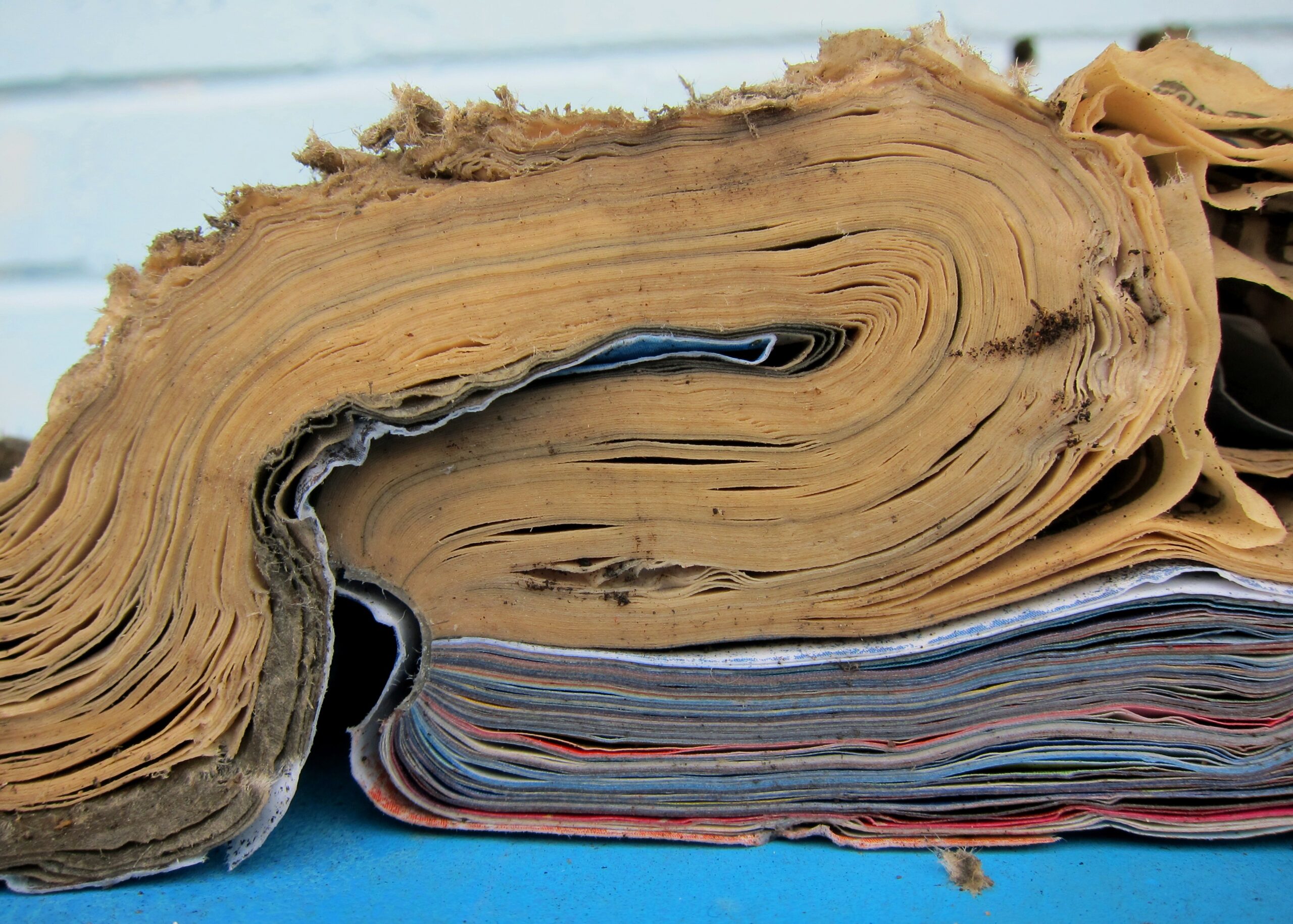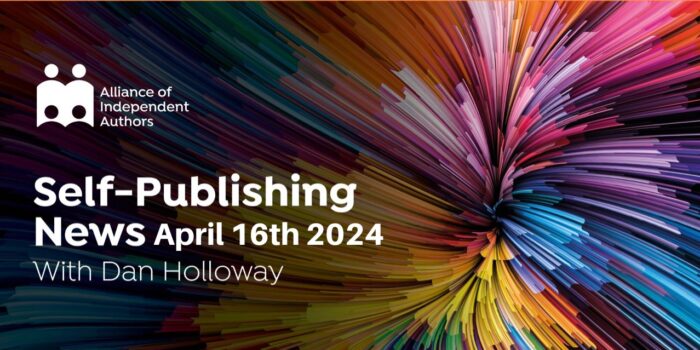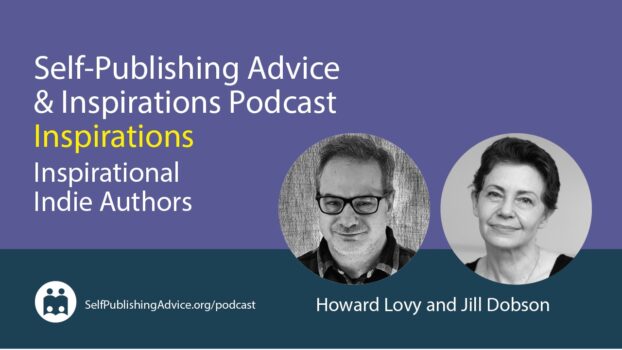 Paperback books were developed as an affordable alternative to hardbacks, democratising book ownership. These days ebooks usually offer a cheaper alternative to print. But are production standards of trade paperbacks falling as publishers aim to optimise their profit margins?
Paperback books were developed as an affordable alternative to hardbacks, democratising book ownership. These days ebooks usually offer a cheaper alternative to print. But are production standards of trade paperbacks falling as publishers aim to optimise their profit margins?
On ALLi's closed Facebook group, visible to members only, there was a lively discussion of the state of the print book trade and the shape of paperbacks to come. With the permission of those who took part, here are some of their key observations.
Jane Turley initiated the conversation:
I much prefer paperback books, but like many have been tempted to buy ebooks because they're cheaper and so I can afford to read more books. However, recently, I came to the decision I would rather have paperback books even if meant paying a bit more. I've ordered three books in the last month that had varying degrees of quality but I was very disappointed with the latest one: the exterior is okay but it doesn't have the lovely waxy feel of either my Ingrams or CreateS pace books and the interior paper is cheap and nasty.
Now I know it's the words that matter, but somehow it already seems to have tainted my reading experience. I expected a better “product”. The paperback copy was very cheap, so I guess one could say the price reflects the production quality, but I was expecting the mass production of this novel to have lowered the cost, rather than the publishers skimping on the quality. But I suppose it's a combination of both. So this leads to several observations:
a) If I can't have an all-round pleasant reading experience then I might as well buy ebooks anyway
b) Are traditional publishers shooting themselves in the foot by lowering paperback standards and prices to encourage sales and *inadvertently* discouraging paperback readers in the future (since they are usually people who waffle on about the touch and feel of a book?)
c) Is this a deliberate manoeuvre by trads to encourage ebook sales in the future where there is more profit margin?
d) Am I reading too much into it? (Probably!)
e) I am very happy I self-published and produced a book which is, in my opinion, lovely to look at, hold and feel
f) Yes, I do know that ultimately it is all about reaching readers and I wonder whether when the authors of these mass-produced books pick up their paperbacks, their hearts sink a little.
James Calbraith observed:
Conversely, I always found the trend in increasing paperback prices and quality a puzzling one. Paperbacks are supposed to be cheap and poor quality. It's their sole raison-d'être. You want a nice book, you pay for a hardcover. Paper books must compete with ebooks either on price, or on quality, they can't win on both.
Lucy McCarraher, who is both a writer and publisher, added:
When traditional publishers mass produce, quality is often lowered. This makes it annoying when people complain about self-published books not being high quality.
Jane Turley responded:
I don't see why paperbacks should be cheap and poor quality – but I suppose it depends on what degree of quality constitutes the description “poor”. I have plenty of paperbacks that say it can be done well enough to make me feel happy with the end product. I'm not that keen on hardbacks – too big for me; I like a nicely-produced paperback and am prepared to pay a reasonable amount for it.
I'm not sure that the argument that paperback publishers have to compete with ebook prices is wholly valid – if you're offering two or three versions of the same book in different formats, you only need to compete at the same price in the same format against competitors. Once a reader has a selected a book they're really choosing between different types of reading experience aren't they? And I suspect most paperback readers will expect to pay more.
I have a number of compliments on my books, and no one seems to have blinked at the paperback price.
Of course when no one is seeing your book in online shopping forums, that's not a massive selling point, but in the physical world for anyone who loves books, the quality of production probably is a strong selling point. I have certainly bought books for their aesthetic appeal.
Simon Denman added:
Interesting observations. I doubt if C is true, but the rest, yes, probably. I prefer paperback for anything I'm likely to reference on a regular basis or if there are illustrations, but otherwise I tend to do all my reading on the Kindle.
Yes, there is something nice about holding a well-made book – it's a bit like the presentation of food on the plate. But once I get stuck into something, I no longer care about that. What's more I think that within a generation or two, this nostalgia for paper will have largely disappeared – along with most of the forests from whence it came.
Jane Turley replied:
I think you are correct about the nostalgia for paper will most likely disappear, and the remaining printed books will most likely be collectors/luxury items like those limited edition plates you see in the Sunday supplements. I hope climate change and deforestation doesn't impact the production of books but, sadly, I think you are also correct in your assumptions.
Samantha Warren added:
It sounds like it's the common business model: Give as little as possible for the most amount of money. I fully believe that print books will become novelties. I don't think they'll ever die out, because people will always want a signed copy of their favorite author's book, but they'll definitely become less popular. With deforestation and whatnot, people are becoming more conscientious about “wasting paper”, and print books will become a special thing that one buys, not the norm.
JOIN THE CONVERSATION
What's your opinion? Please feel free to share via the comments box – or join the daily discussion on the ALLi Facebook forum by becoming a member of ALLi!





One of the things I loved about Amazon is I could get a lot of the classics (Plato, Blackwood, Barrett-Browning, both Shelleys, etc.) for free. A library I had neither the money nor the space for opened up to me. The translation of my free copy of Plato’s ‘The Symposium’ didn’t match that of my little paperback Penguin classic I got for class back in 1990 (I used the same paperback to take notes I used for my short story, ‘A Symposium in Space’.) However, that was back in 1990. I bought a copy of Pliny the Elder’s ‘Natural History: A Selection’ at Streetlight Books in San Francisco in 2016. While I enjoyed the copy, it didn’t have the information I’d hoped for about amulets within it.
[…] Publishing: Is the Quality of Print Books Diminishing? […]
We took over hundreds of books from my parents in law when they downsized which we then inherited. Some were very early paperbacks from the 1939-45 war and afterwards: they were wonderful, but they were also falling to pieces and becoming dust! The paper went browny orange then fell to bits …
While having no romantic nostalgia about paper books, I simply prefer them. They’re more convenient to me as i;m used to underlining, referring back, and generally being a page-flipper. I’m sorry if we all have to get used to doing these things in whatever way they’re done on a screen ( as I hate screens, and after using one all day to work/keep in touch, I just prefer to go to bed with a book. A nice clean paperback.
Which stays open and has a reasonably sized ‘gutter’: so many now seem to scrimp on the pages and the whole book likes to close itself inside, sometimes, its horrible shiny laminated covers! So, I am at present planning to publish on both kindle (for everyone who prefers that, or wants to pay less) and in paperback – for which we are aiming to use a decent recycled paper and a matt cover. Of course, that pushes up the price (to us as well!) Maybe it also produces an object one can regard as at least pleasant if not a collector’s item.
I was always concerned that the quality of my self-published paperbacks would not compare well alongside traditionally published books. However, when I recently spoke at a bookshop event, the traditionally published author remarked on how the quality of books produced through Createspace was better than her second editions. And after close examination, I was inclined to agree. How things have come on in just two years!
When “the common business model: Give as little as possible for the most amount of money” is true, it doesn’t cost someone who wants to appear better to consumers all that much to produce a better product for sale – the competition is “cheap and nasty.”
If the big publishers are going to let their mass market paperbacks decline in quality, it won’t be long before indie is known for ‘better quality paperbacks,’ and we have made huge inroads on another front – because they let us.
It is a terrible thing to be owned by a huge corporation (as all the big publishers are) which will fire your executive officers if they don’t like the quarterly bottom line. You complain – you’re out.
Kind of ironic, isn’t it?
I’ve been reading books for over 60 years, publishing them for six and looking critically at books for about a dozen years.
While one of my favorite books from the 1970s has pages missing and a section repeated, I think the real downward spiral started at the end of the 20th century.
As book publishers were absorbed by large corporations, concentration shifted from quality to profitability, and design and editing were often neglected.
Sadly, self-publishers may emulate the big guys’ bad habits.
POD and e-publishing make it easy and inexpensive (even free) to correct errors, few publishers, large or small, seem to bother. I know I’d rather put my effort into current and future books rather than update or repair old ones.
http://static.wixstatic.com/media/877d79_705af2d7b70eb810d8c3d534d6252818.jpg_srz_p_250_315_75_22_0.50_1.20_0.00_jpg_srz
I collect early 20th century “popular” editions of books because of the care given to quality–beautiful endpapers, leather covers with gold embossing, illustrations etc. I think there’ll always be a market for really beautifully produced books, and perhaps that’s the way to add extra value to a popular novel or series. Look at the clothbound classics Penguin has been releasing (which I also collect).
Ebooks are the replacement for mass market paperbacks, which were always produced at rock-bottom print prices and showed it–ink bleeding into cheap paper, nasty stiff binding that was difficult to keep open, etc. Also, for many of us with ereaders, ebooks are the best way to discover new authors at a low price. I have been known to buy the paper version of an ebook I particularly liked. So let’s celebrate our improved options and find ways to entice readers to collect our books!